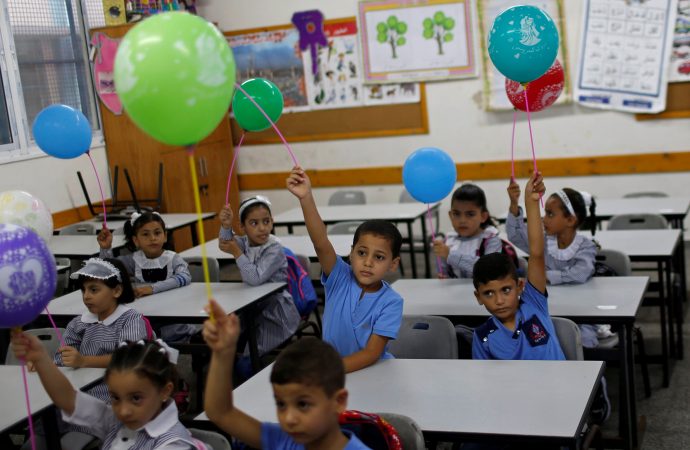JERUSALEM — The Rosary Sisters’ School in Gaza prepared for alternative distance learning due to the COVID-19 pandemic, but they had not prepared for the possibility of an electricity shortage.
“We knew that maybe there would be a (COVID-19) outbreak in Gaza, so we were planning and preparing,” said Sister Nabila Saleh, school principal. “We prepared for online learning, but now we don’t know what we will do with the electricity. Students won’t have internet. We solved one problem and then another problem came.”
Since Aug. 18, Gaza has been facing an electricity shortage due to the closure of Gaza’s lone power plant. Israel closed the Kerem Shalom crossing, blocking the transportation of diesel fuel needed to power the plant following the launching of hundreds of explosive balloons and several rockets from Gaza into Israel.
The balloons, which have continued to be launched from Gaza, have caused 28 fires in Israel, and Israel has conducted air raids on Gaza.
The Gaza plant provides about one-third of Gaza’s electricity, while the Israel Electric Corp. supplies the rest.
Though some of the school’s 1,170 students have solar panels to back up their electricity supply, most do not, Sister Saleh said. The school has solar panels that provide it with electricity.
The school year officially started Aug. 8 and, until Aug. 23, when four people tested positive for COVID-19 in Gaza, classes were being held in school, with precautions being taken. The Hamas-led government called for a complete 48-hour lockdown after the cases, all from the same family, were discovered. No classes — virtual or in-person — have been held since, said Saleh.
She said school officials were waiting for further instructions from the government to be announced the evening of Aug. 26; she was expecting to begin implementing the long-distance learning plan.
However, the Gaza electricity supply, never consistent even on good days, has been reduced to about three to four hours a day, said Saleh.
“Such poor power feed will negatively impact on the well-being and safety of the people of Gaza. It will also have devastating effects on Gaza’s vital services, including hospitals, thus putting the lives and health of nearly 2 million people, including 1.4 million registered Palestine refugees, at risk,” the U.N. Relief and Works Agency for Palestine Refugees in the Near East in Gaza said Aug. 25.
In addition to dealing with the limited electricity and COVID-19 distance learning, many of the students have only one computer per household, said Saleh.
“Some of our families have four, five children. They can’t all use the computer at the same time,” she said. Teachers will record their lessons so students will be able view them when they have electricity or access to their computers. The school has been in touch with their families via Facebook to provide information and reassurances, she said.
“This is Gaza, this is the reality of Gaza,” she said.
By: Judith Sudilovsky
Source: cruxnow.com






